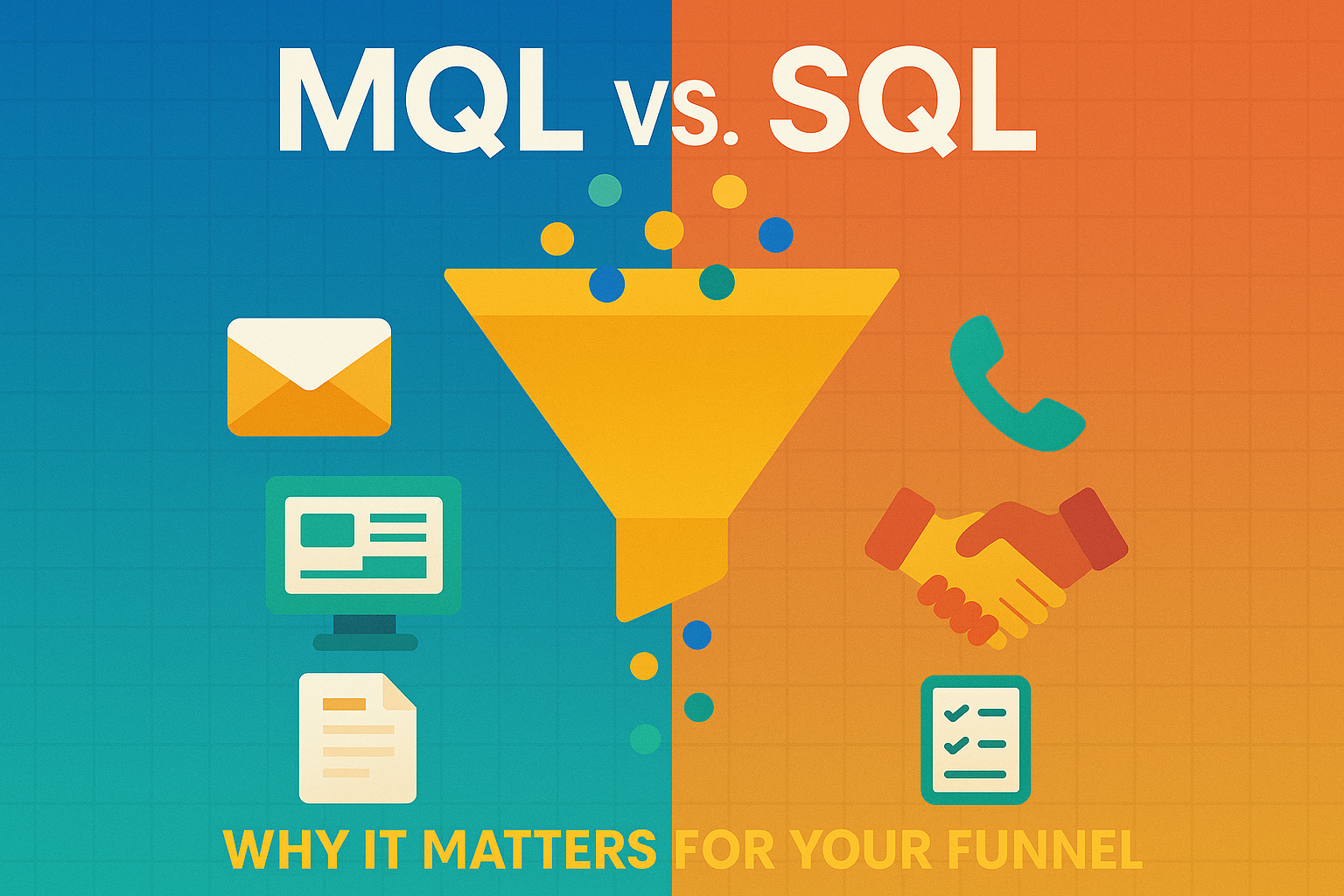By Jo Medico
When you’re investing thousands each month in digital marketing, there’s one thing that should always be crystal clear: which leads are actually worth your sales team’s time. That’s where understanding the difference between MQL and SQL becomes critical.
If your business is relying on a mix of SEO, Google Ads, and referral traffic, but conversions aren’t scaling the way you expected, chances are, your lead qualification process needs a serious upgrade.
What Is the Difference Between MQL and SQL?
At its core, the difference between MQL and SQL comes down to lead readiness.
- MQL (Marketing Qualified Lead): A lead that has shown interest in your brand, perhaps they downloaded a whitepaper, subscribed to your newsletter, or clicked on your ad. They’re engaged but not ready to talk to sales.
- SQL (Sales Qualified Lead): A lead that’s been vetted (often by marketing or a BDR) and is ready to speak with your sales team. They’ve expressed a specific need and show intent to buy.
By identifying this difference between MQL and SQL, you can ensure your sales team isn’t wasting time on leads that aren’t sales-ready, while your marketing team can refine campaigns to bring in more of the right people.
Why This Matters for Revenue-Focused Leaders
If your lead generation system is bringing in volume but not delivering results, it’s time to stop measuring just clicks and impressions and start measuring qualified lead movement through your funnel.
Here’s how the difference between MQL and SQL impacts performance:
- Lower Cost Per Acquisition (CPA): By filtering out unqualified leads early, your sales team closes faster and more efficiently.
- Better Campaign Optimization: Understanding what makes a lead transition from MQL to SQL helps you adjust your ad targeting, landing pages, and offers for better ROI.
- Stronger Sales-Marketing Alignment: When both teams agree on the lead definitions, you’ll stop the finger-pointing and start scaling results.
Common Mistakes That Kill Conversion Rates
- Sending every lead directly to sales, even if they’re not ready.
- Failing to track lead status in your CRM, so marketing doesn’t know what’s working.
- Running Google Ads that drive traffic but don’t qualify users before they fill out your form.
When you don’t understand the difference between MQL and SQL, you risk pouring budget into leads that never convert and burning out your sales team in the process.
How to Fix the Gap and Drive Growth
To build a predictable, scalable lead generation system, you need:
- A clear lead qualification framework with input from both sales and marketing.
- Smart lead scoring tied to behaviors (e.g., site visits, asset downloads, demo requests).
- Marketing automation that nurtures MQLs until they become SQLs.
- Accurate attribution and analytics to see which campaigns drive real SQLs, not just traffic.
Ready to Turn Clicks Into Qualified Leads?
At DoubleDome Digital Marketing, we don’t just drive traffic, we deliver real, measurable results. Our Google Ads and SEO strategies are built to attract high-quality MQLs, nurture them with data-driven content, and convert them into sales-ready SQLs.
If you’re tired of vague reports and wasted spend, let’s talk. Book a strategy call with DoubleDome today and get the clarity and conversions you deserve.









